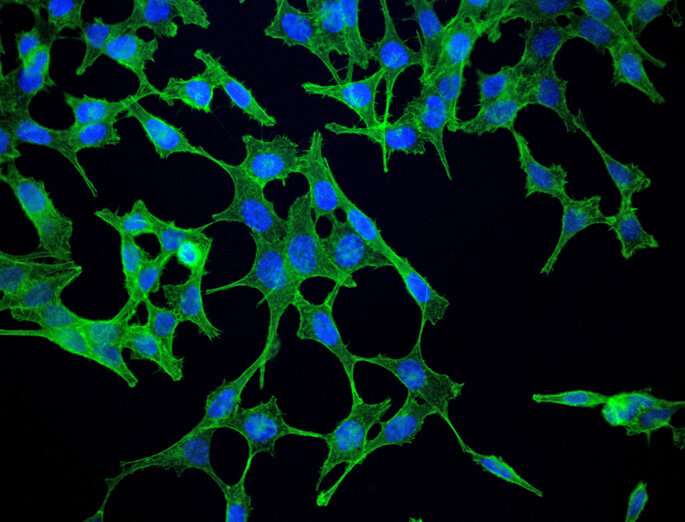Protein loss promotes cell migration

The protein STK17A (serine threonine kinase 17A) appears to play roles in various cancer types. It can be oncogenic or tumor suppressive, depending on the cancer, but its role in colorectal cancer has not been established.
Christopher Williams, MD, PhD, Sarah Short, PhD, and colleagues observed that STK17A expression is reduced in primary colorectal tumors and even further reduced in metastatic lesions. Reducing STK17A expression in colorectal cancer cell lines resulted in changes consistent with an epithelial-mesenchymal transition—a change from tightly connected cells to cells capable of migration and invasion. The researchers found similar changes with loss of STK17A in patient-derived tumor organoids.
The study, reported in Molecular Cancer Research, supports a novel role for STK17A in the regulation of epithelial cell types and suggests that STK17A loss may contribute to colorectal cancer invasion and metastasis. Because the majority of colorectal cancer-associated deaths are due to metastatic disease, identifying pathways that contribute to metastasis is of high importance.
More information: Sarah P Short et al. Serine Threonine Kinase 17A maintains the epithelial state in colorectal cancer cells, Molecular Cancer Research (2019). DOI: 10.1158/1541-7786.MCR-18-0990


















